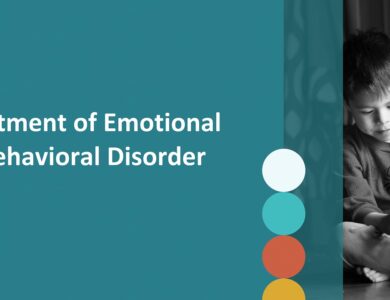
10 Effective Ways to Improve Psychological Well-Being in 2023
In today’s fast-paced world, it can be all too easy to let our psychological well-being slide. Long work hours, financial worries, relationship issues, and the constant barrage of distressing news headlines are just some of the factors that can negatively impact our mental health. However, actively focusing on improving psychological well-being can set us up for greater health, happiness, and success in life.
As we move into 2023, here are 10 effective ways to boost psychological well-being so you can flourish in the coming year:
1. Establish Healthy Sleep Habits
Getting sufficient, high-quality sleep plays a major role in psychological health. Adults should aim for 7-9 hours per night, establishing a regular sleep-wake cycle. To optimize sleep, create a restful bedroom environment devoid of screens. Wind down pre-bedtime by reading a book, taking a bath, or practicing relaxation techniques. Obtaining adequate shut-eye will provide the energy and mental clarity needed to implement other well-being strategies.
2. Incorporate Exercise into Your Routine
Regular physical activity is a powerful antidepressant and anti-anxiety treatment. All types of exercise, from walking to resistance training, can ease psychological distress. Aim for 30-60 minutes daily to release endorphins, reduce stress hormone production, and boost self-esteem. Also consider exercising outdoors to simultaneously soak up mood-lifting sunshine and connect with nature.
3. Nourish Your Body with Nutrient-Dense Foods
A well-balanced, nutrient-rich diet forms the foundation for good mental health. Minimize sugary, processed foods in favor of lean proteins, fiber-filled produce, probiotic foods, nuts, seeds, beans, fish, eggs, yogurt, and whole grains. These provide key vitamins, minerals, antioxidants, and omega-3s essential for optimal nervous system functioning. Stay hydrated too by drinking water throughout the day.
4. Make Time for Enjoyable Hobbies
Carving out time for pleasurable hobbies enhances joy, satisfaction, and purpose in life. Scheduling regular hobby practice combats the effects of chronic work stress. There’s an activity out there perfectly suited to your unique interests, be it gardening, playing music, handicrafts, playing sports, collecting, or volunteering. Trying new leisure pursuits also adds novelty and expands your social circle.
5. Set Aside Daily Relaxation Time
It’s vital to intentionally relax amid nonstop demands on our time and energy. Relaxation requires completely disengaging from work and household responsibilities to calm the mind. Ideal methods include deep breathing, progressive muscle relaxation, meditation, gentle yoga stretches, listening to calming music, or sipping a cup of herbal tea. Just 15-20 minutes daily facilitates the relaxation response, lowering blood pressure and cortisol levels.
6. Foster Supportive Relationships
Humans have an innate need for belonging that powerfully influences mental wellness when fulfilled. Nurture intimate relationships with partners, family members, and close friendships in which you give and receive emotional support. Maintain frequent in-person contact with your trusted support network. Join group activities that align with personal interests to form additional bonds and gain a sense of community.
7. Challenge Your Negative Thought Patterns
Changing psychological habits, like rumination and pessimism, could be a game-changer for your mental health. Counter excessive negative thoughts with balanced thinking. Keep a gratitude journal to shift focus toward blessings versus lacking. And transform critical self-talk by treating yourself with the kindness you would a good friend. A few sessions of cognitive-behavioral therapy can provide additional tools too.
8. Land a New Job or Ask for a Promotion
Since we spend copious time working, a fulfilling career substantially sways well-being. Stagnating in an unsatisfactory or toxic job often deteriorates mental health. Polish your resume and start applying elsewhere. Or, request more responsibility where you are now to stimulate professional growth. Securing improved occupational conditions leads to boosted income, engagement, and happiness.
9. Travel to New Destinations
Visiting novel locations satiates our need for mental stimulation and challenge. Booking an ambitious travel itinerary combats the monotony of daily routines back home. Exploring exotic cultures expands worldviews and fosters openness to different perspectives. Physically journeying to awe-inspiring landscapes elicits positive emotions too. Save up time and money to actualize your bucket list trips.
10. Receive Therapy or Life Coaching
For some, independent efforts to lift mood and outlook still fall short. Professional counseling services deliver targeted support. Meet regularly with a licensed therapist trained in specific treatment modalities tailored to your situation — like trauma, addiction, or relationship dysfunction. Life coaches aid in discovering passion and purpose while identifying and overcoming roadblocks. Online platforms now increase accessibility and affordability of therapy and coaching.
The beginning of a new year presents the optimal opening to hit the reset button on behaviors and habits contributing to psychological distress. Employing a multipronged approach that integrates lifestyle changes, cognitive shifts, social support, and professional assistance sets the stage for remarkable transformation.
Frequently Asked Questions
Q: How much sleep should I get each night to aid psychological well-being?
A: Experts recommend adults get between 7-9 hours of quality sleep per night to optimize mental health and daily performance. Establish a regular sleep-wake cycle and wind down nightly for sufficient rest.
Q: Does exercise really help with mood and mental health?
A: Yes, research conclusively shows regular exercise effectively combats anxiety, depression, and other conditions. All types of physical activity stimulate mood-boosting neurochemicals and reduce stress hormones. Aim for 30-60 minutes daily.
Q: What’s the easiest relaxation technique I can try at home?
A: Deep breathing is one of the simplest yet powerful relaxation techniques. Inhale deeply through your nose, allowing your belly to expand. Then slowly exhale while relaxing your shoulders down. Just 5-10 minutes daily eases tension remarkably.
Q: How often should I connect in-person with close friends and family?
A: Fostering intimate relationships is key for mental wellness. Experts advise meeting up in-person with your trusted support network at least once per week. Video chatting in between offers an emotional boost too.
Q: Can changing negative thinking really improve my mood?
A: Yes! Psychological research shows pessimistic thought patterns fuel anxiety and sadness. Intentionally countering negativity with balanced thinking, gratitude, and self-compassion significantly enhances emotional health.
Conclusion
Bolstering psychological well-being requires diligence given the many complex stressors inherent to modern life. However, relatively small adjustments to daily routines multiplied over weeks, months, and years compound to produce profound benefits. Commit now to several science-backed strategies – from deep breathing to social connectedness to adequate sleep – tailored to your unique needs and interests. Be patient through inevitable ups and downs, tweaking your approach until discovering what ‘sticks’. With consistent effort, this year can mark the beginning of sustainable contentment and inner peace.
Mustafa Al Mahmud is a passionate medical writer and health enthusiast. He is excited to share his knowledge and make reliable health information more accessible through Quick Medico. Mustafa aims to write about common diseases, medications, wellness topics, and the latest health research in easy-to-understand language. He believes clear and accurate health communication empowers readers to take charge of their well-being. In his free time, Mustafa enjoys hiking, cooking, and spending time with his family.



